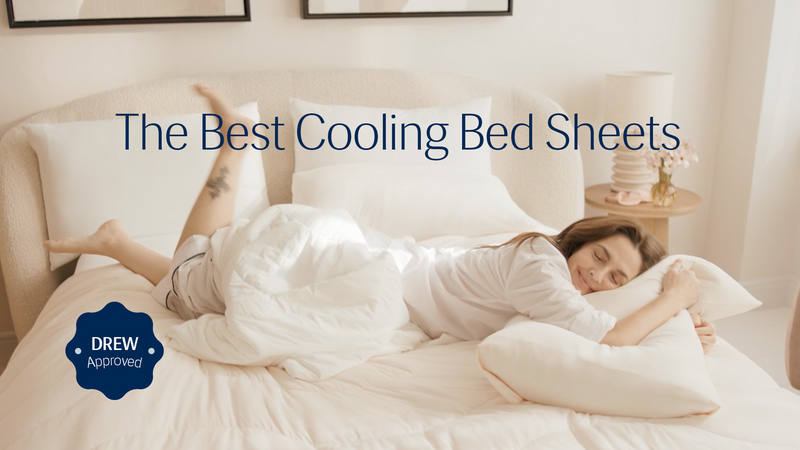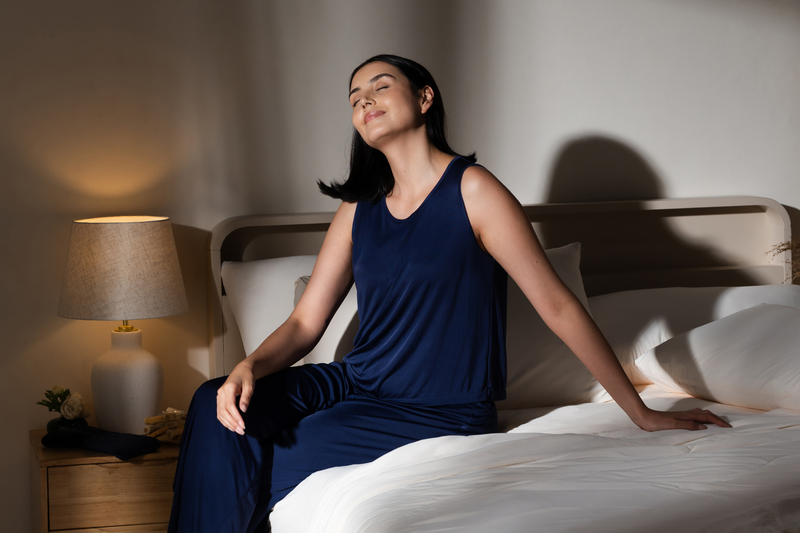Evening Exercises: Working Out Before Bed for Better Sleep?

Should I Work Out Before Bed?
TL;DR:
For many, finding the right time to exercise can be a challenge. With busy schedules, evenings often become the only viable slot for a workout. But does exercising before bed help or hinder sleep? The relationship between evening exercise and sleep quality is nuanced, with scientific research offering insights into how timing and intensity can influence your rest.
Can Exercise Before Bed Tire Me Out for Better Sleep?
There has been numerous studies linking regular physical activity and exercise to positively impacting several aspects of sleep quality, including total sleep duration, sleep efficiency (the percentage of time spent asleep while in bed), and reducing the time it takes to fall asleep (sleep onset latency). However, the key lies in the timing and type of exercise performed.
Contrary to popular belief, moderate-intensity exercise in the evening can actually promote better sleep for some people. A study published in the journal Sleep Medicine found that individuals who engaged in moderate exercise 90 minutes before bedtime experienced better sleep quality compared to those who did not exercise at all.
For optimal sleep benefits, it is recommended to engage in regular physical activity, ideally in the morning or afternoon. Morning and afternoon exercise helps align the body’s internal clock and promote better sleep. Evening exercise is still beneficial, but high-intensity workouts should be avoided close to bedtime to prevent potential sleep disturbances.

How Evening Exercise Affects Sleep
Positive Effects
- Enhanced Sleep Quality: Moderate evening exercise can increase the duration of deep sleep stages, which are crucial for physical recovery and memory consolidation. This can leave you feeling more refreshed and alert the next day.
- Reduced Sleep Latency: Engaging in physical activity can help you fall asleep faster. Exercise raises your body temperature, and the subsequent cooling down period post-exercise mimics the natural decline in body temperature that occurs before sleep, signalling to your body that it’s time to rest.
- Stress Reduction: Physical activity releases endorphins, which help reduce stress and anxiety, two common culprits of sleep disturbances. By lowering stress levels, evening exercise can make it easier to unwind and fall asleep.
Potential Drawbacks
- Increased Alertness: High-intensity workouts too close to bedtime can elevate heart rate and adrenaline levels, making it harder to fall asleep. It’s generally recommended to avoid vigorous exercise within 90 minutes of bedtime.
- Disrupted Sleep Patterns: For some, the stimulating effects of exercise can lead to trouble falling or staying asleep, particularly if the workout is too intense or too close to bedtime.
Finding the Right Balance

Type of Exercise
- Moderate Aerobic Activities: Activities like brisk walking, cycling, or light jogging can be beneficial if done at least an hour before bedtime.
- Strength Training: Light to moderate strength training can also promote better sleep, especially when performed earlier in the evening.
- Relaxing Exercises: Activities like yoga or stretching are excellent choices for evening exercise. They help relax the mind and body, preparing you for sleep.
To maximize the sleep benefits of evening exercise, aim to finish your workout at least 60 to 90 minutes before bedtime. This allows your body enough time to cool down and transition into a restful state.
Personalize Your Routine
Individual responses to evening exercise can vary. It’s important to pay attention to how your body reacts and adjust your routine accordingly. If you find that evening exercise disrupts your sleep, consider moving your workouts to earlier in the day or incorporating more relaxing activities in the evening.
Exercising before bed can lead to better sleep for many people, provided the activity is moderate in intensity and completed well before bedtime. By understanding your body’s response to evening exercise and making necessary adjustments, you can create a routine that enhances both your fitness and sleep quality. As always, listen to your body and consult with a healthcare professional if you experience persistent sleep issues.
#TheRestIsMagic
Resources
- Alnawwar, Majd A et al. “The Effect of Physical Activity on Sleep Quality and Sleep Disorder: A Systematic Review.” Cureus vol. 15,8 e43595. 16 Aug. 2023, doi:10.7759/cureus.43595
- Stutz, J., Eiholzer, R., & Spengler, C. M. (2019). Effects of evening exercise on sleep in healthy participants: A systematic review and meta-analysis. Sports Medicine, 49(2), 269-287.
- Kline, C. E. (2014). The bidirectional relationship between exercise and sleep: Implications for exercise adherence and sleep improvement. American Journal of Lifestyle Medicine, 8(6), 375-379.
- Buman, M. P., & King, A. C. (2010). Exercise as a treatment to enhance sleep. American Journal of Lifestyle Medicine, 4(6), 500-514.
- Reid, K. J., Baron, K. G., Lu, B., Naylor, E., Wolfe, L., & Zee, P. C. (2010). Aerobic exercise improves self-reported sleep and quality of life in older adults with insomnia. Sleep Medicine, 11(9), 934-940.
- Chang, S. P., & Chen, Y. H. (2015). Effects of exercise on sleep quality in middle-aged and older adults: A systematic review and meta-analysis of randomized controlled trials. Journal of Sleep Research, 25(4), 403-411.









